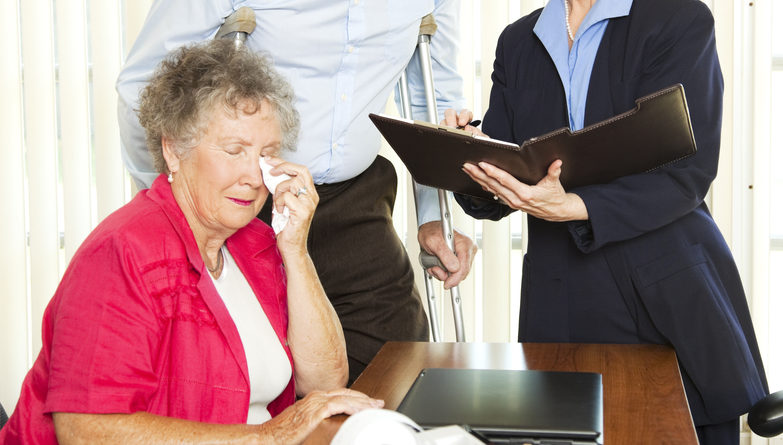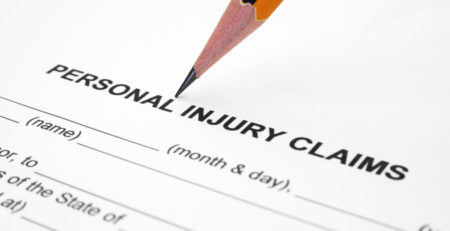8 Documents You Should Show Your Personal Injury Lawyer after a Car Accident
If you sustained injuries due to a car accident, the success of your damages claim or personal injury lawsuit will highly depend on your ability to provide evidence that the other driver was at fault. You may also need to provide proof that you sustained damages or injuries during the accident. Even if you will be hiring a Greenwood personal injury lawyer, having the documents that prove these claims will make the attorney’s work so much easier.
So, what documents should you hand over to your personal injury attorney, which can help strengthen your personal injury claim?
Here are eight of them.
1. A Copy of the Police Report
When an accident occurs, the police will come to the scene. The police are supposed to draft an incident report that may capture information such as:
- The officer’s initial opinion on the cause of the accident
- A diagram showing where other pedestrians and motor vehicles were at the scene of the accident
- The officer’s opinion on whether there was a violation of any traffic rules
- Statements from witnesses, drivers, and passengers
Although the accident report may change as more evidence is collected later, it provides a foundation from where your attorney can start the investigations.

To get a copy of the police report, you’ll need the details of the accident date, location, drivers involved, and the law enforcement officer that came to the scene. Give these details to the police agency that arrived at the scene and request for a copy of the police report.
If private investigations were done by other parties, you can also obtain their reports through the discovery process. The reports may provide more detailed information than what is indicated in the police report. For example, the reports may show the liability of the at-fault driver.
The information revealed in the discovery can also help settle the case even before you go to court.
2. Tickets and Fines Given at the Accident Scene
If you were given any ticket or fined during the accident, let your attorney know. For instance, you may get a ticket for failure to yield or be fined if you were driving under the influence.
In such cases, the fine and ticket can be used against you, even if you were not to blame for the accident. However, your attorney will be able to review the ticket and other evidence of the accident and build a case showing that you were not the one at fault.
3. Information Provided at the Accident Scene
The parties involved in a car accident will often exchange information at the scene. The information exchanged may include:
- The names of the drivers
- Telephone number of the drivers
- The license number of drivers
- Insurance information
- Information on the cars involved in the accident
Keep all the information you get at the accident scene safe and provide it to your attorney.
It is advisable to take pictures or video of the accident scene showing how badly your vehicle was damaged. If you don’t have pictures, a representative of your insurance firm may have taken some. Let your attorney know about this so that he or she can obtain the information from the insurance firm.
Some roads also have cameras located at strategic parts. These cameras may have captured the events that took place. If you can get the recordings, you’ll have boosted your case as they can be essential in helping you win your personal injury claim.
Finally, some witnesses may also have taken pictures of the accident scene with their mobile phones. Some of them may be nice enough to provide you with these pictures, which you can copy or send to your phone.
4. Information Related to Your Insurance Policy
Your lawyer will want to see a copy of your insurance policy to determine the coverage you have. The attorney may also need to review if the policy has expired and whether you have been paying premiums on time.

You’ll also need to provide a copy of your health insurance card to your attorney. With the health insurance information, the lawyer can discuss the payment of your medical expenses with your cover provider.
5. Proof of Insurance Premium Payments
If your car insurance policy is paid for, your attorney will need to see proof of payments. These can be in the form of copies of bank statements, credit card statements, receipts of cash payments, or copies of checks sent to the insurance firm. This helps prove that the policy is valid and paid for.
6. Statements
If you are a party to an accident, there is a high likelihood that you will be asked by the police at the scene to give your statement. The other driver and any witnesses will also be asked by the police to provide statements. Further, your insurance company may also seek a statement on the accident.
If this happens, you have a right to get a copy of your statement from the police and your insurance company. Even if you didn’t get a copy of the statement, let your attorney know that you made a statement so that he or she can get it for you.
You can also keep a car accident journal or diary that has your statement of the accident immediately after it occurred. The journal should also have any other communication you had with other related parties. Such a journal can help your attorney understand what occurred during the accident. Moreover, you will be able to keep tabs on the important details of the accident.
7. Your Medical Records
After the accident, you may have sought medical care for your injuries. If you did, provide your attorney with copies of the medical records. These documents should also include treatment records for any psychiatric or psychological care you might have sought, and physical therapy you may have received for your injuries.
From the medical records, your lawyer will determine your diagnosis, how much money you spent on medical care, and if you had any underlying medical conditions before the accident that may affect your claim.
If you forgot to get copies of these records, your attorney can help you get them. You’ll need to give them the name and address of all the medical providers you visited and a written consent allowing him/her to access the records on your behalf.
8. Pay Records
When you suffer serious injuries from a car accident, you may need to take time off from your job or business. This may entitle you to compensation related to lost wages. Your personal injury lawyer may need to determine how much money you are entitled to that relates to this claim.
Having proof of your earnings before the accident can make it easier for your lawyer to calculate your lost wages. This means you may have to provide your most current payroll records, tax returns, and any other financial documents related to your job or business.
Personal injury lawsuits and insurance claims related to car accidents are often complicated. Seeking the help of a personal injury attorney can make it easier for you to get fair compensation.
Your attorney will advise on the documents you need to have and even help you obtain them from the relevant parties. Moreover, the lawyer will advise you on your claim options and help you build a strong case.





